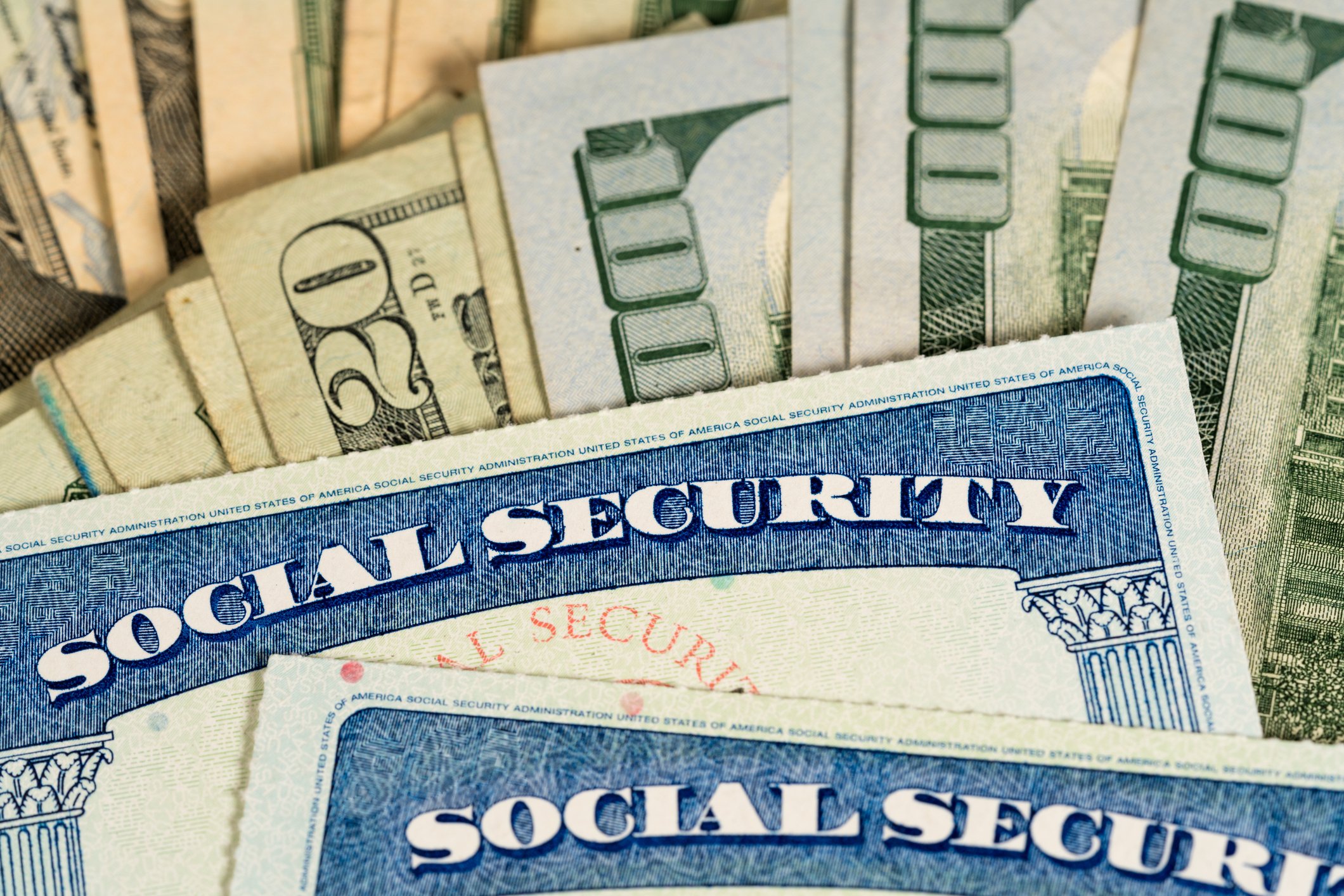Relying too much on Social Security can be risky, and most soon-to-be retirees realize it. Concerns surrounding Social Security are among the top two worries baby boomers have regarding their later retirement years, along with rising healthcare costs, according to the Insured Retirement Institute. In fact, three-quarters (76%) of 'boomers are worried that cuts to Social Security benefits could affect their retirement income.
It's a very real concern. While the Social Security program won't collapse entirely (as long as people keep paying their taxes), there is a possibility that benefits could be cut in the relatively near future. And that's bad news, given that the IRI's report shows that 42% of baby boomers have no independent retirement savings.

Image source: Getty Images.
Running on empty
According to a recent Social Security Board of Trustees report, the program is paying out more in benefits than it is collecting in taxes, and by 2034, the trust fund reserves will be depleted. While that doesn't mean that benefits will be completely eliminated, it does mean there may only be enough money to cover 79% of the program's costs. In other words, benefits could be cut by up to 21%.
If you're relying on Social Security just to make ends meet, a 21% reduction could put a major strain on your finances. The average beneficiary receives around $1,300 per month, according to the Social Security Administration, so a 21% cut would leave you with just over $1,000 each month.
This is all assuming Congress won't be able to figure out a solution by 2034. Still, it's a good idea to prepare for the worst in the event the government doesn't come to an agreement on how to solve the Social Security problem. When your retirement is at stake, it's wise to have a backup plan in case your benefits are affected.
The good news is that it's not as hard as you may think to beef up your own savings so that you don't need to rely entirely on Social Security. Of course, if you're just a few short years away from retirement and you don't have a penny saved, it won't be a walk in the park -- you'll need to make some serious sacrifices to save as much as you need. Even then, you still may not be able to save enough to ensure a secure retirement, and the best you may be able to do at that point is save a bit to supplement your Social Security benefits. However, saving something is better than nothing, and it's important to ensure you're doing everything you can to prepare for retirement.
Supercharge your savings
The closer you are to retirement age, the more you'll need to save to catch up and reach your financial goals. But it's never too late to start saving, and the sooner you begin, the easier it will be.
Let's say you're 50 years old with just $10,000 saved for retirement. You'd like to retire at 65, and you're currently saving $500 per month and earning a 7% annual rate of return on your investments. At this rate you'll have roughly $178,000 saved by age 65.
Is that better than nothing? Certainly -- but it's not enough to last you through retirement, even if you have Social Security benefits supplementing your income. If you're this far behind, you need to make some sacrifices to boost your savings rate as much as possible. Say you expect to need $40,000 per year to get by in retirement, and your Social Security statement (which you can view by creating an account on SSA.gov) says you'll get about $15,000 per year in retirement benefits. That means you'll need $25,000 per year to come from your own savings. To produce that much income every year without exhausting your savings during retirement, you'll need a nest egg of about $625,000, according to the 4% rule.
In addition to saving more, you might consider working as long as you can. The benefits here are twofold: You have more time to earn and save your income, and delaying Social Security retirement benefits can earn you fatter checks each month.
Returning to our previous example, let's say you're contributing $500 per month to your retirement fund, but instead of retiring at 65, you wait until age 70. That would bump your total savings from $178,000 to around $285,000.
On top of that, if you hold off on claiming Social Security for a few years, you'll receive bigger benefit checks each month. While you can start claiming Social Security as early as age 62, for every month you wait, you'll receive slightly bigger checks (until you reach age 70). If you're 50 years old now, your full retirement age (or the age at which you'll receive 100% of the benefits you're theoretically entitled to each month) is 67. If you wait until age 70 to file, you'll receive a bonus of 24% on top of the benefits you're already entitled to.
That means that if your full benefit amount (or the amount you'd receive for filing at your full retirement age) is, say, $1,300 per month, a 24% boost would amount to around $1,612 per month. If you instead filed two years early, at age 65, your benefits would have been reduced by 13.3%, leaving you with around $1,127 per month.
What happens to Social Security is largely out of our hands, and there's no way to predict for sure whether benefits will be slashed in the future. But if you're worried about your retirement finances, then accelerating your savings and delaying retirement could go a long way toward making your golden years comfortable and secure.





